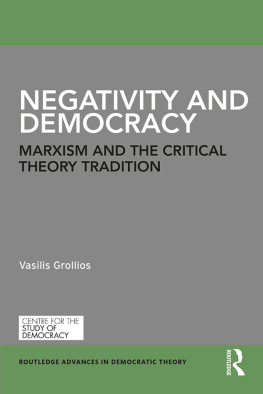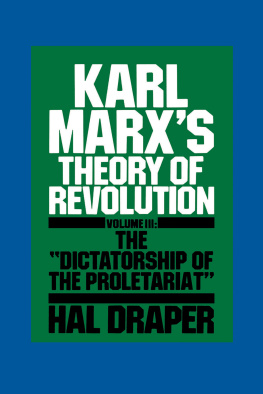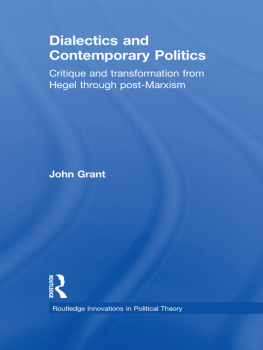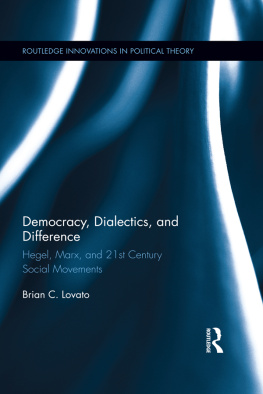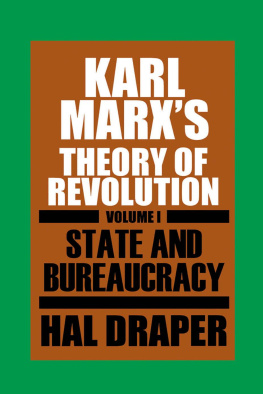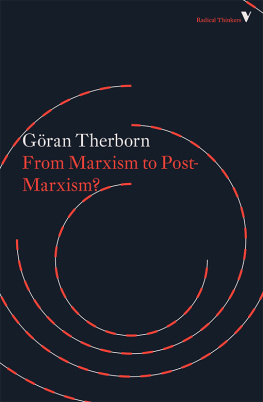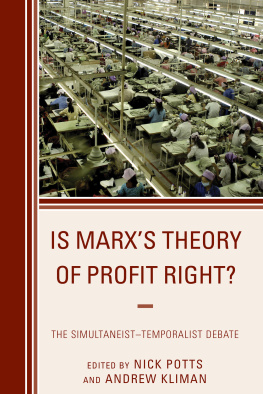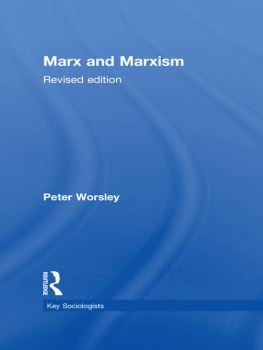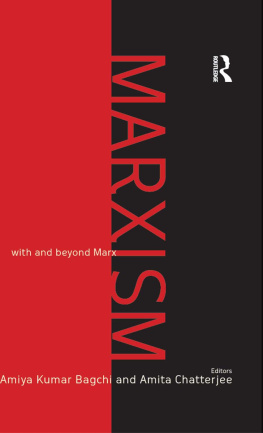How do we get out of here? We know that capitalism is a catastrophe for humanity, but we seem to be trapped. All our struggles seem to lead us back to the same starting point: the reproduction, in one way or another, of the logic of capital, the logic of death and destruction. We desperately need to break the grammar of capital, the conceptual and organisational framework that leads us round and round in circles. That is why Vasilis Grollioss book is so important. It is not just an excellent development of an intellectual tradition: it confronts us with the need to break deadening, death-bringing mainstream theory. Read it.
The current political climate of uncompromising neoliberalism means that the need to study the logic of our culturethat is, the logic of the capitalist systemis compelling. Providing a rich philosophical analysis of democracy from a negative, non-identity, dialectical perspective, Vasilis Grollios encourages the reader not to think of democracy as a call for a more effective domination of the people or as a demand for the replacement of the elite that currently holds power. In doing so, he aspires to fill in a gap in the literature by offering an out-of-the-mainstream overview of the key concepts of totality, negativity, fetishization, contradiction, identity thinking, dialectics and corporeal materialism as they have been employed by the major thinkers of the critical theory tradition: Marx, Engels, Horkheimer, Lukacs, Adorno, Marcuse, Bloch and Holloway.
Their thinking had the following common keywords: contradiction, fetishism as a process and the notion of spell and all its implications. The author makes an innovative attempt to bring these concepts to light in terms of their practical relevance for contemporary democratic theory.
Routledge Advances in Democratic Theory
Edited by David Chandler and Paulina Tambakaki (both University of Westminster)
Advisory Board: Benjamin Barber (City University of New York), Rajeev Bhargava (Centre for the Study of Developing Societies), Bhikhu Parekh (House of Lords), Fred Dallmayr (University of Notre Dame), John Keane (University of Sydney), Chantal Mouffe (University of Westminster).
CENTRE FOR THE
STUDY OF
DEMOCRACY
Democracy is being re-thought almost everywhere today: with the widespread questioning of the rationalist assumptions of classical liberalism, and the implications this has for representational competition; with the Arab Spring, destabilizing many assumptions about the geographic spread of democracy; with the deficits of democracy apparent in the Euro-zone crisis, especially as it affects Greece and Italy; with democracy increasingly understand as a process of social empowerment and equalization, blurring the lines of division between formal and informal spheres; and with growing demands for democracy to be reformulated to include the needs of those currently marginalized or even to include the representation of non-human forms of life with whom we share our planet.
Routledge Advances in Democratic Theory publishes state of the art theoretical reflection on the problems and prospects of democratic theory when many of the traditional categories and concepts are being reworked and rethought in our globalized and complex times.
The series is published in cooperation with the Centre for the Study of Democracy, University of Westminster, London, UK.
1 Nations and Democracy
New Theoretical Perspectives
Amanda Machin
2 Reclaiming Democracy
Judgment, Responsibility and the Right to Politics
Edited by Albena Azmanova and Mihaela Mihai
3 Performing Citizenship
Social Movements across the Globe
Edited by Inbal Ofer and Tamar Groves
4 Constrained Elitism and Contemporary Democratic Theory
Timothy Kersey
5 Democracy and Justice
Reading Derrida in Istanbul
Agnes Czajka
6 Negativity and Democracy
Marxism and the Critical Theory Tradition
Vasilis Grollios
First published 2017
by Routledge
711 Third Avenue, New York, NY 10017
and by Routledge
2 Park Square, Milton Park, Abingdon, Oxon, OX14 4RN
Routledge is an imprint of the Taylor & Francis Group, an informa business
2017 Taylor & Francis
The right of Vasilis Grollios to be identified as author of this work has been asserted by him in accordance with sections 77 and 78 of the Copyright, Designs and Patents Act 1988.
All rights reserved. No part of this book may be reprinted or reproduced or utilized in any form or by any electronic, mechanical, or other means, now known or hereafter invented, including photocopying and recording, or in any information storage or retrieval system, without permission in writing from the publishers.
Trademark notice: Product or corporate names may be trademarks or registered trademarks, and are used only for identification and explanation without intent to infringe.
Library of Congress Cataloging-in-Publication Data
A catalog record for this book has been requested
ISBN: 978-1-138-88646-9 (hbk)
ISBN: 978-1-315-71484-4 (ebk)
Typeset in Sabon
by Apex CoVantage, LLC
Contents
Negativity and Democracy is about a time out of joint and false promises. Conventional democratic processes have been rocked by populist assertions about making this or that political economy great and strong again. Economic strength was lost in 2008 when the global economy went into financial meltdown. Populism feeds on miserable social situations. It identifies what is wrong but does not ask about the conditions of a wronged world. Its lament is eternal and self-serving.
Negativity and Democracy recognizes that the satisfaction of human needs is not innate to a form of social reproduction in which time is money. Why really does human social reproduction take the form of money as more money? Wealth as more money comprises a form of social reproduction, in which each individual carries the bond with society in her pocket. Making more money is the necessary means of avoiding bankruptcy. Money that does not bring forth living offsprings posits no wealth. It posits unemployment, entails the risk of liquidation and renders precarious the connection between what Hegel called the class tied to work and the means of subsistence. For the sake of recovering the dynamic of abstract wealth, of money as more money, the achievement of greater labour productivity is of the essence; it increases the time available for the valorization of money. Indeed, failure to make a profit entails great danger. To the vanishing point of death, the life of the class tied to work hangs by the success of turning her labour into profit as the fundamental condition of achieving and sustaining wage-based access to the means of life. The alternatives are bleak. The struggle to sustain access to the means of life is relentless. Yesterdays profitable appropriation of some other persons labour buys another mans labour power today; for the buyer it is means of profit and, on the pain of ruin, a profit has to be extracted from its employment. For the seller, the sale of labour power establishes access to the means of subsistence. She works for profit in order to live. In the form of money as more money, the wealth of nations does not recognize human needs. It recognizes the necessity of profit. In this form of wealth the satisfaction of human needs is a mere sideshow.

